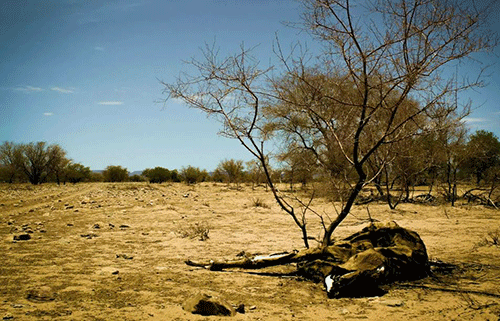The Kunene Regional Council is making steady progress in providing basic services and alleviating poverty.
The region has mutually beneficial relationships with various stakeholders who have ploughed back into the communities of Kunene towards the socio-economic development of the region for the past 32 years of independence.
KRC senior public relations officer Tulimekondjo Pandeni said the region has prioritised the provision of potable water to the communities, especially rural areas that do not have potable water. “In collaboration and partnership with various stakeholders and the Ministry of Agriculture, Water and Land Reform, more than 53 boreholes have been drilled, installed and rehabilitated. This is a continuous exercise,” she explained.
Another achievement worth celebrating in the region is housing provision, as decent housing in all towns under the management of the local authorities and in collaboration with the KRC has been provided in collaboration with the Shack Dwellers Federation of Namibia and other stakeholders.
“Through the various initiatives, applause can be given in that the government and stakeholders have constructed infrastructure such as the Opuwo Town Market and the Kamanjab Pensioners Shade Shelter at Nampost in Outjo. The Directorate of Education, Arts and Culture in the Kunene region has built and renovated various schools here over the past 32 years,” she indicated.
There have also been an increase in early childhood development (ECD) centres in the region for the development of children from early birth to the age of eight.
“There are about 89 ECD centres across all seven constituencies, a number continuously on the increase. Network coverage has also improved tremendously as there have been network towers erected in the Sorris-Sorris, Anabeb and Otjomatemba areas over the past two years, in addition to the many others erected in the past 32 years in the region,” she continued. Pandeni said rural electrification through the NORED and CENORED electrification projects have stretched out to areas such as Otuzemba, Omakange, De Riet and Etanga in partnership with the Ministry of Mines and Energy, which is an ongoing exercise. Last year, the Kunene region allocated funds for the Food/Cash for Work programmes to implement various constituency projects such as community gardens, roads, infrastructure development (Okanguati Maternity Shelter), protection walls and fencing to protect against marauding wildlife. “About 17 projects and businesses under micro-financing and food security were provided with material to start or expand their businesses. This is meant to uplift SMEs,” she said. According to Pandeni, 52 VIP pit latrines in rural areas across all its seven constituencies at a value of over N$1.1 million have been constructed.
On education, the region has allocated funds to renovate and build new classrooms, as well as ablution and hostel facilities at various schools across all seven constituencies.
“In collaboration with the office of the governor, the Otjinungua community received a container to utilise as a temporary clinic for basic healthcare. In collaboration with the Ministry of Agriculture, Water and Land Reform and Environmental Investment Fund of Namibia (EIF), the IREMA Kunene project was launched that assisted vulnerable households and farmers with the small stock revolving scheme. About 20 selected beneficiaries received goats, fodder and energy-efficient stoves. The construction of the vocational training college in Khorixas has likewise seen great progress towards the completion of the institution,” she added.
This year, Pandeni said, the KRC will continue to enforce its small capital projects and coordinate with various stakeholders in bringing development to its people.
“In this coming financial year 2022/23, the projects that are in the pipeline of implementation as well as ongoing projects are phase one of our Okanguati Settlement Office to bring service delivery closer to the people of Okanguati. The provision of water to the settlement is to be implemented in collaboration with the agriculture ministry. The re-gravelling of internal roads in the Okanguati settlement in the Epupa Constituency and the eradication of the bucket system, construction of toilets, service connections, sewer networks and the rehabilitation of a sewer pump station at the Fransfontein settlement are planned for phase two,” she pointed out.
Pandeni furthermore said the region has identified the problem of dropouts from tertiary education due to a lack of funds, as well as learners not enrolling in tertiary institutions because of the same funding issue.
The region plans to host a gala dinner for its development trust fund to lobby for donations/funds that can assist learners in the region who enrol in tertiary education institutions, which will, in the long run, contribute to the employment rate within the region as a large percentage of the population will have access to tertiary education.
“Overall, the main challenge of the KRC, like all government institutions, is financial constraints in the allocation of funds to the earmarked projects”, she stated.


